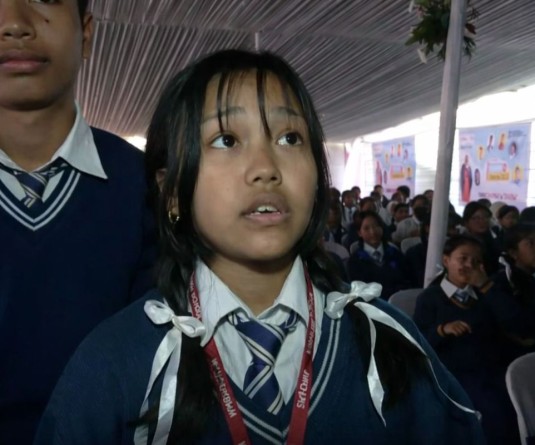
Newmai News Network
Shillong | October 26
The five-day International Brain Research Organization (IBRO) APRC Associate School on ‘Modern Interventional Tools for Children with Neurodevelopmental Disorders’ was inaugurated on October 25. It was organized by the Department of Biomedical Engineering in collaboration with the Department of Education, North-Eastern Hill University, Shillong.
The aim of the present IBRO-APRC Associate School 2021 would provide participants with extensive knowledge to understand the modern interventional tools related to cognitive impairment in children with neurodevelopmental disorders and improvement in their functional outcome and quality of life.
The school is being held in close coordination with the Society for Neurochemistry India (SNCI) Satellite meeting scheduled immediately on completion of the IBRO School from October 30 to November 1.
This school would provide exposure and include hands-on training to the participants with the theme “Modern interventional tools to improve Cognitive behaviour in children with neurodevelopmental disorders” that would allow understanding how diseased brain condition could be improved and made to function similar to the normal human brain.
Presently, the neuro-modulation technique is an emerging medical and research field that targets the nervous system to do restoration of functional performance, relief of pain and control of involuntary movements thereby improving neuroplasticity.
The key features of this school would be an emphasis on open scientific discussion with experts, a hands-on laboratory training experience and presentation of the participants through symposia and group meetings during the proposed School.
It would lead to the generation of new technological know-how and sharing of research ideas among the participants and experts for the advancement of the field globally.
The participants for this School would be doctoral research scholars, Master’s students, young faculty members, scientists and researchers working in the field from the Asia Pacific region.
The school received a large number of applications from participants from different countries in the Asia Pacific region such as India, Pakistan, Bangladesh, Armenia, Nigeria etc. Eminent Speakers from India and abroad would be sharing their knowledge and experience over the week-long event.
The School was inaugurated by NEHU Vice-Chancellor, Prof PS Shukla. In his address, Prof Shukla spoke about the impact of modern technology on children with disabilities and how it could be linked to socio-economic factors in the North-Eastern region.
He spoke about Article-7 and the Convention on Rights of the People with Disability (CRPWD) with emphasis on Neuroplasticity, Cognitive Behaviour and Inclusive Education.
Prof Bibhuti Bhusan Biswal, Director, NITM who was the Guest of Honor spoke about the integration of technology with modern-day resources to work for improving the lives of people with disabilities.
He discussed how to overcome the digital divide and provide education on neuro-developmental disorders to all.
The Special Invited Guest Dr Cheah Pike See, Chair, IBRO APRC from the Universiti Putra, Malaysia discussed the scope of the IBRO School and the opportunities available to young budding scientists and researchers for seeking funding from the IBRO.
She also congratulated Dr Bhatia and his team for planning and organizing a wonderful event along with the Society for Neurochemistry India (SNCI) Satellite meeting. Dr Sanjay Kumar Mishra, Senior Adviser, Department of Biotechnology, Govt of India and Invited Special Guest spoke about the opportunities available in India for the researchers to collaborate and work for people with disabilities.
He emphasized the importance of organizing such programmes in the country and how it could be linked to policy decision making in the long run.
He mentioned how the Cognitive Science Research Initiative (CSRI) of the Govt. of India concentrated on integrating Medical Sciences, Anthropology, Education, Psychology, Technology, and advanced disciplines to focus on translational research and general disorders.
Prof Donkupar Syiem, Director, Design Incubation Centre, NEHU, Shillong spoke about the opportunities available in the region and how they could be integrated for societal benefits. He spoke about the status of such disorders at a global level and touched upon learning new technologies such as Artificial Intelligence, Informatics, Machine Learning, Robotics and Genome Editing. He emphasized the role of Design Incubation and how it could be integrated with the needs of society.
Prof LJ Singh, Dean, School of Technology also shared his views during the event and was happy that a third such event was being organized in the School of Technology funded by IBRO.


.jpg)


.jpg)
